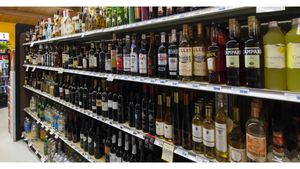MAKING THE CUT 2006
What's your beef? Whose chicken?These questions weigh on the minds of many a supermarket retailer as they add organic, grass-fed, humane-certified and free-range products to their meat cases. It's hard to recall the last time there was so much buzz in this commodity category."It's growing quickly, and our stamp on it is we want to give our customers a choice," said Kenan Judge, assistant vice president
September 18, 2006
ROBERT VOSBURGH
What's your beef? Whose chicken?
These questions weigh on the minds of many a supermarket retailer as they add organic, grass-fed, humane-certified and free-range products to their meat cases. It's hard to recall the last time there was so much buzz in this commodity category.
"It's growing quickly, and our stamp on it is we want to give our customers a choice," said Kenan Judge, assistant vice president of meat operations for Hy-Vee Food Stores in West Des Moines, Iowa. "If there are customers who want to buy it, and there certainly are, we want to make sure they have it."
Until 2002, when the U.S. Department of Agriculture implemented the National Organic Program, specialty meat basically meant value-added products like stuffed chicken breasts, or premium-priced certified Angus or Hereford beef. Conventional retailers largely avoided offering organic meat because there were no federal standards. The arrival of the NOP changed all that, and allowed the category to start participating in the burgeoning whole health movement using the recognized, green USDA seal. Over the past few years, however, operators have noticed just how quickly interest has spread beyond organic to include options such as grass-fed beef.
"The trend of people who are interested in knowing where their food comes from, and are not blindly buying it - that is a trend that is continually increasing," said Tom Heinen, co-owner of Heinen's Fine Foods, Warrensville Heights, Ohio.
The market is still relatively small, but growth in these products has been impressively consistent. The Health & Wellness Trends Database compiled annually by the Natural Marketing Institute, Harleysville, Pa., shows organic beef and poultry sales up last year 78% and 113%, respectively. No one knows where it will stop.
"Historical growth rates indicate that short term, this segment will continue to grow at a fast pace," said Jim Henger, executive director of retail marketing for the National Cattlemen's Beef Association. "However, long-term projections as to the size of this niche market are difficult to predict."
"Niche" remains the pivotal word when retailers themselves talk about meats sold under a specific profile. Natural/organic protein sales in retail supermarkets may be growing quickly, but are miniscule compared to the total category. In the case of beef, sales were $59 million in the fourth quarter of 2005, compared to $3.6 billion for all beef, Henger said. The sales ratio is similar for poultry.
Nevertheless, retailers have seen tremendous consumer interest in health and wellness expressed in other store departments, and believe the meat case holds the same potential. Mainstream supermarkets are bullish on the products, and most are making space for such meats. Publix Super Markets, Lakeland, Fla., became one of the more recent operators to add specialty protein options, with plans to expand its GreenWise Market brand to include fresh meats. Spokeswoman Shannon Patten said the chain will introduce GreenWise chicken in the coming months and will likely follow with beef and pork products. The air-cooled chickens are antibiotic-free and raised on vegetarian diets, Patten said.
As such products are integrated into the mix, retailers face a number of challenges: How many SKUs? Where to merchandise them? At what price? For the most part, these back-room questions can be answered by looking at sales data and offering cuts that mirror their best-selling conventional counterparts.
It's the consumer side of the sales equation that requires a more sophisticated approach, for this is the point where retailers cede control of the sales process to consumers, and it's well known shoppers react differently to the idea of specialized meats. They use a wide - some say fickle - range of criteria in making their decisions.
"Shoppers are intrigued by all the differences and are interested in learning about them," observed Mona Doyle, president of The Consumer Network, a Philadelphia-based organization.
"At the same time, there are a lot of people who are very skeptical, who really don't think the whole natural thing means anything, that the current conventional system is fine."
That said, consumers expressing even a willingness to try a specialized meat require precise, well-conceived marketing plans, experts say. They want concise information about the product, and they are influenced by intangible factors such as health, family and fear. Therefore, merchandising strategies must be totally transparent, according to observers.
"At the end of the day, customers want the truth. They're always speaking of being confused," noted Christopher Speed, a New York-based nutrition specialist who added more steps could be taken to communicate with consumers.
"The beef industry is a great example of this when they start labeling their meat as all-natural or organic. What does it really mean?" he asked. "It sounds good and has this touchy-feely language, but consumers don't know what it's all about."
The value of honest, open marketing in the meat department cannot be overestimated. One of the least talked-about benefits that has presented itself to conventional retailers investing in the health and wellness movement is a new chance to develop a level of trust that transcends consumer expectations, and in so doing, becomes a compelling differentiator in a crowded retail landscape.
"I need to trust the retailer; that is, that I have confidence that the retailer does their homework, that they understand what the category is and that they've vetted the suppliers who bring product into the stores," said Jesse Singerman, president of Prairie Ventures, Iowa City, Iowa. "And, that they understand what natural and organic consumers are looking for, and make information on verification available at point of purchase."
Singerman, until recently director of natural and organics at Roundy's Supermarkets, Milwaukee, Wis., added that research in the past few years has shown pretty clearly that interest in health is the No. 1 driver in a consumer's decision to purchase a niche meat, "and that gets translated into certain benefits in products; in this case, no antibiotics or hormones," she said.
"What's most important for me is the natural/organic basis of the product I am buying. If you want to make it ready-to-cook, or whatever, that's fine. But I think the first thing I'm looking for is the verifiable natural or organic claim. That's the point from which the entire purchase decision is made for most core natural/organic shoppers."
Fortunately, most conventional retailers treat the specialty meat category seriously, taking steps to educate managers and associates about the particular qualities of a beef or poultry product. At Heinen's, staffing the department with consumer-centric employees is critical to introducing customers to the various protein options being offered.
"We have marketing material out front, but we really count on our associates to interact with customers and help explain the lengths to which we've gone to give them the best products," Heinen said.
Staffers who are more comfortable on the production end should be retrained, or scheduled to work hours when fewer shopper inquiries come over the counter. Heinen said nothing beats the direct interaction between associate and consumer.
"We periodically demo using our own associates rather than an outside firm, so they can speak to Heinen's Own beef and the Never, Ever product," he said, referring to the 16-store chain's proprietary lines, typically sampled on Fridays, Saturdays and Sundays. Heinen's Own covers beef, pork and organic chicken. Beef and poultry are further supported by a "Never, Ever" claim reassuring customers the products contain no growth hormones, antibiotics or additives.
"Our hope is that this [claim] encourages people to ask exactly what that means," Heinen said.
D'Agostino Supermarkets, Larchmont, N.Y., launched a top-to-bottom initiative in 2006 to make all protein perishables certified humane. The 23-store chain currently offers 14 veal items, nine poultry products and eight pork cuts. Next is beef, according to Luigi Mucciacciaro, D'Agostino's director of dairy, frozen and meat.
"We're close to about 50 items altogether. That's where we're at right now," he said. "Maybe 25% of the case is certified humane. Veal and poultry are our two biggest-selling meat items."
As part of the effort, the retailer makes extensive use of shelf talkers, posters and on-pack stickers in and around the meat case. Mucciacciaro said veal certification in particular has made a deep impression on shoppers.
"When you think of veal, you think of this little animal, and it's always the first thing that comes to mind," he said, noting how consumers for years have self-imposed bans on purchasing or eating veal due to conventional farming methods they consider cruel. "We won't carry anything else in veal but certified humane."
That term, in and of itself, is relatively easy to understand; that is, shoppers probably have an idea of what "certified humane" signifies, though store associates have been thoroughly trained in the standards used to certify each supplier.
"We're trying to educate them as much as we can," Mucciacciaro said. "It's all about getting the information out there as much as possible to let them know about the treatment of the animal."
As new certification programs come on line, consumers are going to need help interpreting their importance, especially in light of the premiums they pay on such products. Hy-Vee's Judge is currently talking with his meat supervisors to develop an all-natural beef line that would be a third option to complement the retailer's existing Blue Ribbon and Amana lines.
"We haven't made our mind up yet on what we want to do. We're just starting now to look at that," he said. "We don't have the parameters built on this yet."
The chain already offers all-natural, as well as organic, fresh chicken; and natural pork. "Not every one will want it, but we want to make it part of our offering, to complement what we already have," Judge said.
Good Advice
Using share or focus groups, analyze which specialty labels interest customers.
Establish a visible paper trail with suppliers for verification purposes.
Educate, educate, educate. Tap supplier resources, including store visits, for introductory and refresher sessions regarding product attributes.
Organize printed marketing materials at point of sale to avoid a sloppy, confusing display. Keep it clean and well-stocked.
Claims Adjusting
In 2002, the USDA implemented the National Organic Program. Now, the agency is preparing to wade into the field on what constitutes "grass-fed." The proposed regulations, covering cattle, sheep and other ruminants besides pigs, were to be issued in August. To be eligible for the new label, a cattle's energy source would have to be 99% grass or other forages, a number that is much higher than the 80% threshold proposed in 2002. That number was met with loud criticism by certain sectors of the industry, since almost all farm animals have a largely grass diet to begin with. Cattle, for instance, get 75% of their lifetime energy source from grass. So, while producers will still be able to label any product grass-fed, only those who have their operations certified will have the official approval of the USDA.
About the Author
You May Also Like




